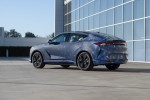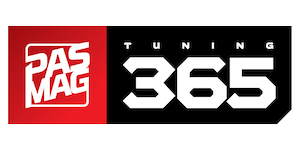You may have noticed cars driving around with a small camera mounted to the dash, or perhaps you’ve seen a bunch of internet videos where these cameras recorded accidents or near-misses.
While dash-cams have been popular in other parts of the world for quite a while, they are just now catching on in North America.
The dash-cam is simply a unit that mounts to your dash or windshield and automatically records as you drive. When the internal memory becomes full, it simply overwrites the earliest recordings and keeps on going. A good dash-cam is one of the best possible witnesses you could have in the case of an accident, particularly when it’s down to a matter of your word against someone else’s as to who ran the red light. Dashboard cameras are also great tools for reporting reckless or drunk drivers, and are great for worried parents of teen drivers. Another excellent reason for a dash cam is the prevention of the common fraudulent claim. From faking injuries to extorting payment on the spot, a dash cam will have these knuckleheads slinking off in the other direction. Maybe you simply want to record an epic drive or road trip. A good dash-cam and a handful of memory cards can provide an excellent memory of your adventure.
The Kenwood DRV-410 camera not only records your drives, but it does it in greater resolution than other cameras. With a resolution of 2304 by 1296 pixels, it has a three-megapixel capability rather than just the two megapixels you get from a regular “Hi-Vision” camera. Additionally, it’s GPS enabled, so it always knows exactly where you are should an event occur. Also built into the DRV-410 is a sophisticated three-axis G-force sensor with three levels of sensitivity. This sensor can be used to begin a recording should an impact to the vehicle occur when parked. This can be incredibly helpful when trying to prove who is at fault in an accident, or where the car was located when vandalism occurred. Should an event occur, Kenwood Drive Reviewer is a free PC application that displays the recorded video and all the pertinent information, such as time of day, location, and speed on your computer.
Installation of the camera is quick and easy. You simply attach the mounting bracket to the camera, and stick the mount’s adhesive pad where you want the camera located. The unit can be powered by two different types of power cords: one is a typical cigarette lighter cord, and the other is a longer cord that can be hidden and hardwired to the vehicle’s fuse box for a more permanent installation, or if you want to make use of the parking recording function when your car is turned off. Once the camera is mounted and wired, you turn it on and adjust the angle for best coverage and tighten the locking ring. Once installed and aimed, you go through a quick setup procedure in the camera’s menu, which sets the camera’s mounting height and distance back from the front bumper, and that’s it! You are ready to drive protected by Super HD video recording!
The DRV-410 uses high dynamic range capability to prevent under or overexposing the image, like when entering or exiting a tunnel in bright daylight for example. This improved dynamic range, coupled with the Super HD resolution, allows the camera to take much clearer and legible video in difficult places, like parking garages or at night. Memory for the camera is via a standard SD card and the camera includes an 8-GB memory card, but you can swap it out for up to a 32-GB card. With the included 8-GB card, you can record up to 50 minutes in Super HD video, or up to five separate files before any overwriting begins.
There are four available recording modes, with a Continuous Recording mode being the default that comes on at camera power up. There is also a manual recording mode, which will record everything from 10 seconds before you pressed the button until you stop the recording or it times out at the time setting you selected. You can also extend the manual recording time by simply pressing the button again. Event Recording mode starts after the detection of a sudden collision or other impact. This event recording creates its own file, and begins 10 seconds before the event occurred if you were already in the continuous recording mode. The fourth mode is Parking Recording mode, which occurs when the power to the unit is normally turned off, but the camera has been hardwired to a constant power source. Thanks to the onboard G-force sensor, the impact will turn the camera on, and recording will start a few seconds after the impact occurred. When parking recording ends, the camera automatically returns to collision monitoring. The Kenwood camera allows you to start recording manually as well, and can also be used to take still photos if needed.
There are several other valuable and safety related functions built into the Kenwood camera as well. For example, if you are traveling over 40 mph and your car drifts into an adjacent lane, the unit will beep to alert you. If you become too close to the car in front of you, the collision avoidance warning will sound, giving you time to brake and avoid a collision. It will even remind you that the traffic in front of you has moved when waiting at a stop light, or if your car has begun to roll backward, should you become distracted. In case of an unexpected interruption of the power, there are internal super capacitor power supplies that retain power long enough for the video file to be closed properly, instead of getting corrupted and becoming useless.
With the introduction of the Kenwood DRV-410, there is a simple easy-to-use camera that can not only provide peace of mind and critical evidence if needed, but its safety warnings can keep you out of trouble during your daily commute. The DRV-410 sells for around $200 in the U.S. and is available at your local Kenwood dealer.
Visit http://www.kenwood.com for more information. #pasmag
Related Articles
 Air Lift Performance ALP4 - Next Level Air Suspension Management
Air Lift Performance ALP4 - Next Level Air Suspension Management
 Acura To Bring Back The RSX… Sort Of
Acura To Bring Back The RSX… Sort Of
 Metra to Show New Speaker Adapter Plates and Harnesses at SEMA 2024
Metra to Show New Speaker Adapter Plates and Harnesses at SEMA 2024
 KW Suspensions Coilovers for Ferrari Testarossa
KW Suspensions Coilovers for Ferrari Testarossa
 Morel Sensus Component Systems
Morel Sensus Component Systems
 Stingray Brings Karaoke to Select Ford Vehicles
Stingray Brings Karaoke to Select Ford Vehicles









